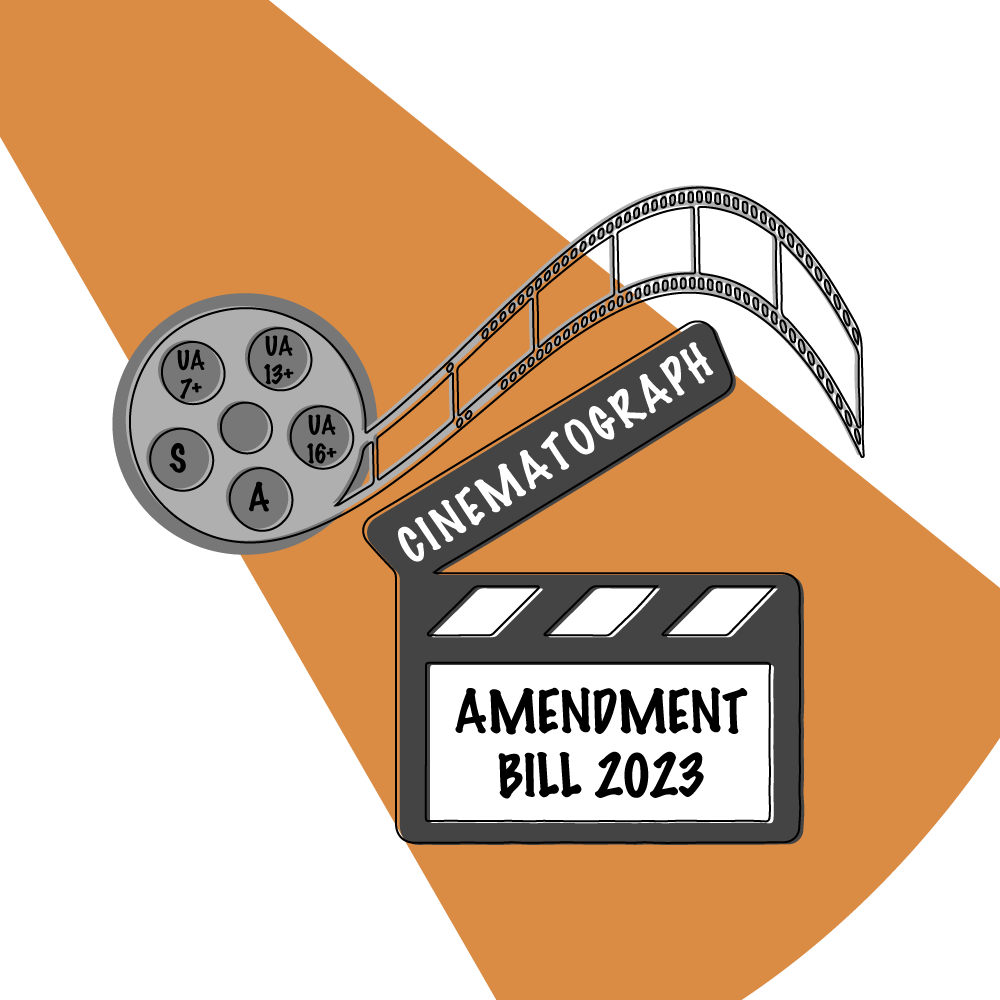The Cinematograph (Amendment) Bill 2023

Recently, the Parliament approved the Cinematograph (Amendment) Bill 2023. The Bill envisages several amendments to the existing Cinematograph Act 1952. A look at the highlights:
The Cinematograph Act 1952
- The Act contains provisions and guidelines for certifying and or censoring the commercial movies / films which are exhibited in public venues and medium such as cinemas / theatres / television.
- The main objective of the Board is to ensure that films exhibited to the public are appropriate for viewing. Hence a process of strict certification of films are put in place.
- The certifications under the existing Act are:
U: Unrestricted public exhibition / viewing by all groups of people. They are family friendly films.
U/A: Films not considered appropriate to be viewed by children of age 12 years and below as they contain moderate adult scenes.
A: films that can be viewed by people of age 18 years and above as they contain explicit violence, sexual scenes, nudity, abusive language, insulting or inciting any group of people or deal controversial issues
S: Not open for public exhibition. It can be viewed only by specialists such as doctors, lawyers, scientists etc. - Screening of films as stated above is possible only after receiving certification from the Central Board of Film Certification (CBFC). Colloquially, it is referred to as the “Censor Board” or “Board”. the CBFC is a statutory body under the Ministry of information and broadcasting. The Board has the right of refusal to certify also.
- The Board has its headquarters in Mumbai and other regional offices across various states of the country. The composition of the Board is decided by the Central government and functioning of the Board is governed by the Act.
The Cinematograph (Amendment) Bill 2023
- The Amendment Bill 2023 adds additional certification categories in addition to the existing ones. Such categories are based on age –
This amendment further demarcates the UA certification based on age group:
UA 7+: viewing with parental guidance for children above 7 years of age
UA 13+: viewing with parental guidance for children above 13 years of age
UA 16+: viewing with parental guidance for children above 16 years of ageFilms with an ‘A’ or ‘S’ Certification will have to seek / procure separate certification, if necessary, with deletions or modification for exhibiting on television (TV) or any other media prescribed by the central government. - Films with an ‘A’ or ‘S’ Certification will have to seek / procure separate certification, if necessary, with deletions or modification for exhibiting on television (TV) or any other media prescribed by the central government.
- The Certificate once issued will be valid perpetually (In the 1952 Act, it was valid only for 10 years)
- The amendment will now include certain provisions of Copyrights Act 1957 relating to limited or no use of certain works without owner’s authorization. This is to ensure protection of intellectual property rights (IPR) relating to such works including films.
- Unauthorized use or exhibition of films in unauthorized places will now attract fine between Rs. 3 lakhs and 5% of the audited gross production cost and imprisonment between 3 months – 3 years. The penal provisions have been put in place to tackle rampant piracy issues.
- The power of the central government to revise certification (given by the Board) has been done away with. This will ensure greater autonomy and independent and transparent functioning of the Censor Board.
The objective of introducing the Cinematograph (Amendment) Bill 2023 is to tackle piracy stringently by imposing fines and penalties. India has several film and television industries which continually produce content. With the industry’s’ turnover estimated at crossing 100 billion dollars, the amendments seem to be the need of the hour.
For full text of the Bill:
https://prsindia.org/billtrack/the-cinematograph-amendment-bill-2023

